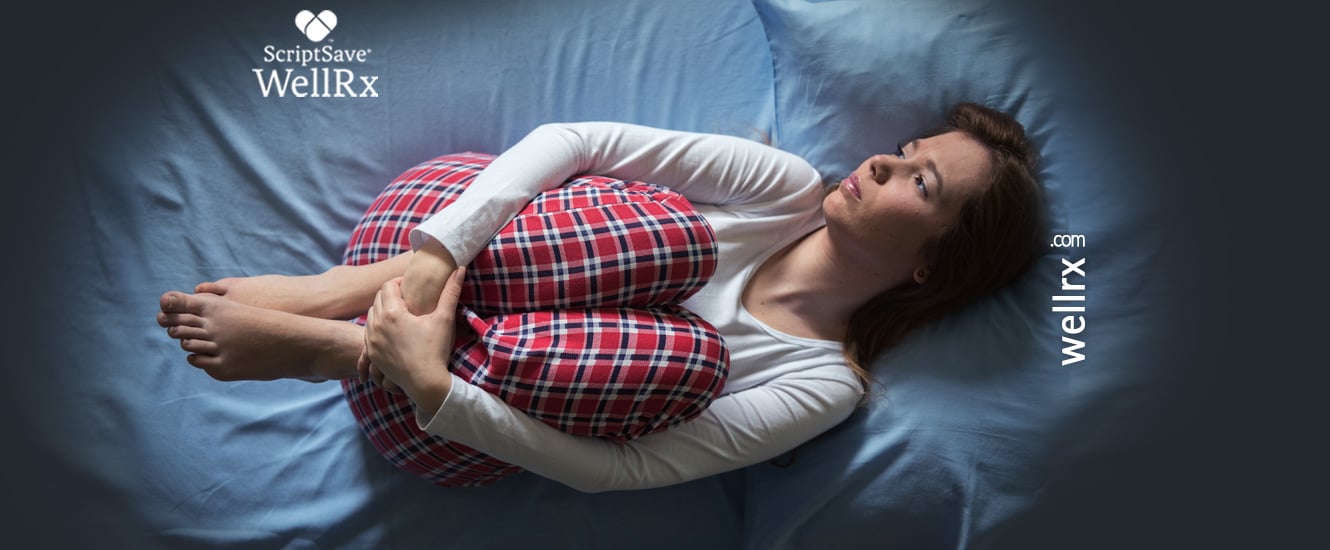New developments in medicine help us identify and treat various diseases and syndromes. One such medical complication that has received a lot of attention over the past 10 years is restless leg syndrome, or RLS. You have probably heard the term “restless leg syndrome” as the medical community has shed light on the causes, symptoms, and treatment options for this disorder. Today, you are going to gain an in-depth look at what RLS is, whose more likely to develop RLS, how it impacts people, symptoms, and ways to treat this disorder.
RLS in the United States
RLS is a syndrome that has only recently garnered attention from the medical community and society. You most likely had never heard of the term “restless leg syndrome” 20 years ago let alone had any idea what it was. Today, it is hard to watch television without seeing an advertisement for medication used to treat RLS. What’s interesting is that RLS is fairly common, so common in fact that researchers estimate that roughly 10% of the population in the United States has RLS. This estimation includes both adults and children. 10% of the population in this country means millions of people across the United States struggle with issues related to RLS.
What Is RLS?
RLS, also known as Willis-Ekbom Disease, is categorized as both a neurological disorder and a sleep disorder. Symptoms of RLS most commonly occur near the end of the day and during the night when you are asleep. The symptoms can cause significant disruption in your ability to fall and stay asleep, which is why it is also categorized as a sleep disorder. It is often difficult to go back to sleep once the symptoms of RLS have disrupted your sleep and caused you to wake up.
What Are Neurological Disorders?
To get a comprehensive understanding of what RLS is, it is important to have a general understanding of what a neurological disorder is. A neurological disorder is a disorder of the brain, nerves, or spinal cord which comprise the nervous system. There are a vast number of neurological disorders that have been identified. More specifically, there are more than 600 neurological disorders, and symptoms of neurological disorders vary. Symptoms are dependent on several individual factors such as genetics and environmental influences as well as the type of neurological disorder you have.
Neurological disorders can impact the way you talk, the way you move around, your ability to learn, your ability to breathe, and your ability to swallow. Your memory, your senses, and your mood/mental health can also be impacted by neurological disorders. Symptoms can range in intensity and severity. Some common neurological disorders include:
- Parkinson's disease
- Epilepsy and other seizure disorders
- Alzheimer’s disease
- Meningitis and other infections
- Brain and spinal cord injuries
- Brain tumors and other cancers
Symptoms of RLS?
Symptoms of RLS vary from person-to-person and are also dependent on individual and environmental factors such as lifestyle habits, genetics, and other variables. One of the most common symptoms is an insatiable urge to move your legs and lower limbs along with unusual sensations in your lower limbs. The sensations in your lower limbs and legs can feel like several things including:
- Itching
- Aching
- Pulsing or throbbing
- Creeping
- Crawling
The above-mentioned sensations can be felt in your upper body, although that is uncommon as they are usually felt on both sides of the body.
Symptoms of RLS vary each day and are different for each person. In severe cases, RLS symptoms can occur multiple times a week and significantly disrupts sleep whereas more mild symptoms occur once a week or less. Other characteristics of RLS symptoms are listed below.
- You may feel relief in your legs and lower limbs when you move your body, this can include pacing or keeping your legs moving while you are sitting down.
- The symptoms usually occur after a period of inactivity where you have been sitting or lying down for an extended period.
- Symptoms worsen and intensify during the nighttime and symptoms are non-existent or minimal in the morning.
- You may experience difficulty falling or staying asleep with RLS.
- You may experience changes in mood including increased feelings of anxiety and depression.
- Extreme fatigue and sleepiness during the daytime.
- Decreased productivity during the day.
- Impaired memory and difficulty concentrating.
Generally, symptoms of RLS become more serious over time and during the early stages of RLS, it is common to have symptoms disappear for some time and re-emerge later on.
Is Periodic Limb Movement (PLMS) the Same as RLS?
Periodic limb movement of sleep is described by involuntary leg jerking and twitching that occurs roughly every 15-40 seconds throughout your sleep cycle. RLS and PLMS are distinct from one another and most individuals who have PLMS do not experience RLS. However, it is estimated that over 80% of individuals with RLS experience symptoms of PLMS.
Risk Factors for RLS
As with most disorders, it is difficult to identify a direct “cause” for RLS. However, researchers have found that certain factors may make you more likely to develop RLS. Factors that may make you more likely to develop RLS include:
- Low iron levels in the brain
- Having specific genetic variants that have been associated with RLS
- Disturbance of the chemical dopamine in the brain
- Being diagnosed with Parkinson’s disease
- Having nerve damage, also known as neuropathy
- Using substances that contain nicotine, alcohol, and caffeine
- Having underlying sleep disorders including sleep apnea
- Hormonal changes as a result of pregnancy or other medical conditions
- End-stage renal disease
Furthermore, some common medications can exacerbate RLS symptoms including psychotropic medications used to treat mental health disorders, medications that contain antihistamines, and certain anti-nausea medications.
How Do I Get Diagnosed with RLS?
If you think you may have RLS, talk to your doctor about the symptoms you are experiencing. Your doctor can give you a comprehensive medical and physical examination and will use five different benchmarks to determine whether or not you meet the criteria for RLS. The following criteria are used by medical professionals to diagnose RLS:
- You have intense and involuntary impulses to move your lower limbs and the sensations you experience are unpleasant, uncomfortable, and awkward.
- Your urge to move your legs is eased mildly, moderately, or completely with lower body movement.
- When you are stationary or at rest your urges to move your legs intensify.
- You notice that your urge to move your lower body increases at nighttime.
- The first four criteria listed are not related to any other behavioral or medical diagnosis.
While there isn’t a single test that is used to determine if you have RLS, your doctor may conduct bloodwork to rule out any other medical complication that may be causing your symptoms.
The Future Outlook of RLS
While researchers have made advances in the understanding of RLS, a lot is still unknown about the syndrome. Scientists are studying the role of neurotransmitters and hormones in the development of RLS and are working to advance their understanding of how the environment and genetics (epigenetics) influence the development of RLS. What we do know about RLS so far is that the symptoms are manageable.
Treatment Options Available to You
Unfortunately, there is no cure for RLS. However, RLS can be treated by a combination of interventions including lifestyle changes, medication, and therapy. If you have been diagnosed with RLS, talk to your doctor about treatment options that are suitable to you and your needs.
Common treatment options for RLS include:
- Anti-seizure medication- This is the first line of treatment for individuals with RLS. Anti-seizure medications such as pregabalin and gabapentin can help reduce nerve pain and improve sensory function.
- Iron supplements- Low iron levels can increase your risk for RLS.
- Opioids- These are used to treat individuals with severe pain who haven’t been responding well to other forms of treatment.
- Dopaminergic agents- These medications increase dopamine levels in the brain which and when they are taken at night, they can lessen the symptoms of RLS.
- Benzodiazepines- Benzodiazepines are used for sedation purposes and they can help promote restful sleep at night.
- Engaging in moderate leg stretches and cardiovascular exercise.
- Using temperature to reduce uncomfortable sensations such as an ice pack or heating pad.
- Taking a warm bath.
- Getting a massage.
- Establishing and maintaining a regular sleep schedule to promote restful sleep.
- Minimizing or eliminating the use of nicotine, alcohol, and caffeine products.
- Obtaining foot pads specifically designed for individuals with RLS.
- Using vibrating pads on your legs.
If you are taking prescription medication for restless leg syndrome or any other health condition, ScriptSave WellRx can help you save money on your prescription drugs. ScriptSave WellRx can help save you up to 80% by using the free prescription drug card. The free prescription drug card is accepted nationwide at pharmacies near you.
Jacquelyn Buffo began writing at the age of 10 when she won a county-wide essay contest explaining why her mother is worth her weight in gold. Since that time, she has written for several newspapers and a health and wellness blog. Her education and experience is in mental health and addiction. She is a licensed counselor and currently provides therapeutic services on an outpatient basis. Her counseling and substance abuse experience includes inpatient residential, in-home, and early recovery counseling. She is a certified addiction specialist and is working on obtaining her certification in Dialectical Behavioral Therapy. She also specializes in working with pregnant and post-partum women and has received advanced training on women's health.
Resources:
National Institute of Neurological Disorders and Stroke. (2023). Restless leg syndrome.
National Library of Medicine. (2014). Neurological diseases.













 Store & manage your medication list
Store & manage your medication list Medication pricing updates
Medication pricing updates Pill & refill reminders
Pill & refill reminders Medication journal & mood log
Medication journal & mood log